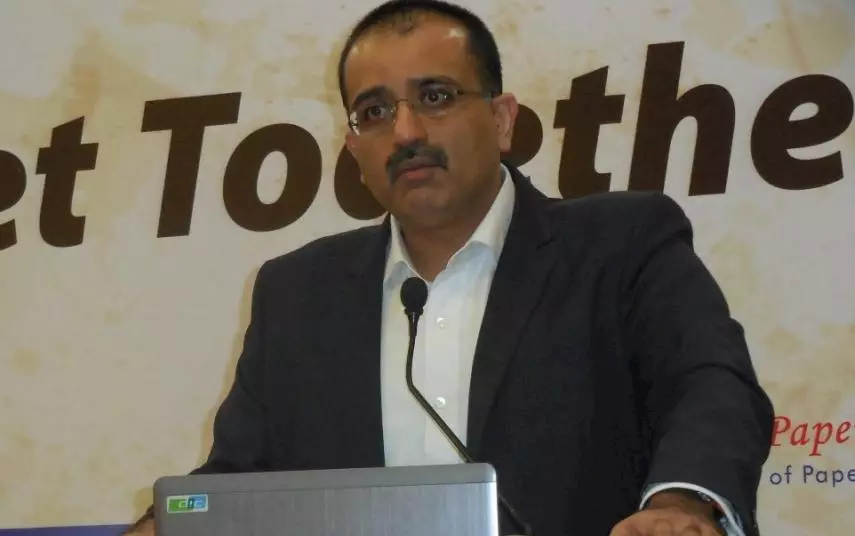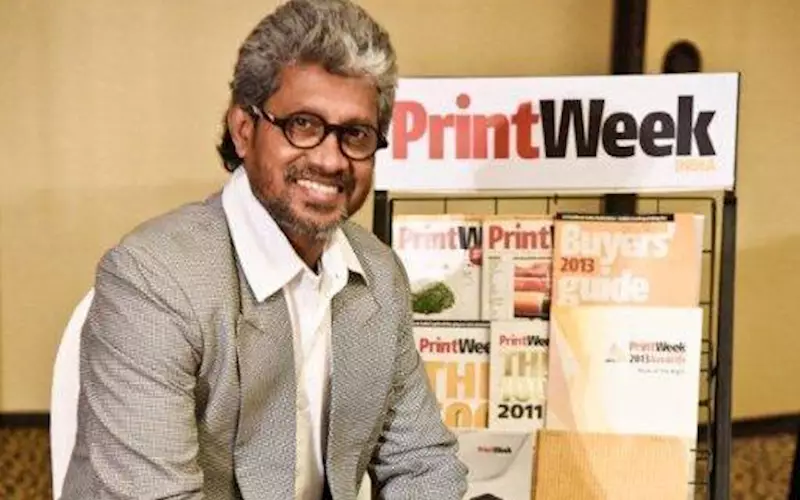What ails the mighty print firms of Mumbai? - The Noel D'Cunha Sunday Column
One of Mumbai’s leading Urdu dailies, has ceased printing due to a financial dispute between partners.
05 Feb 2016 | By Noel D'Cunha
According to a report in a leading Sunday daily, there was a dispute between the paper’s managing partner who held 50% shares and his partners.
A top book print firm which has a legacy of having produced the best authors in Maharashtra is “selling out” after high debt and what the owner termed “huge financial pressure on the company due to a recent expansion”
The Noel D’Cunha Sunday Column is about why the print firms in Mumbai are waxing and waning?
Meanwhile, another very reputed eight-decade old print firm in South Mumbai sent out an email seeking "printing jobs for their 546 mm cut-off coldset machines."
- Akshar Pratiroop
- Colour Cartons
- Conway Printers
- Infomedia (Tata Press)
- Inland Printers
- In Chem Graphics
- K L Bhargava
- Krishna Printery
- Malti Arts
- Metal Box
- Mudrika
- Neo Graphic
- Printline (Byculla)
- Printwell
- Rite Print Pak
- Stusa
- Sudarshan Arts
- Thomson Press
- Uma Offset
- Usha Printers

Jayraj Salgoakar of Kalnirnay says, "The list will be ten times bigger if one counts presses, at least having a two-colour press or mini offset machine."
The point is if this seems to have led many in the industry to assume that if it can happen to such a company, then it can happen to anyone, regardless of how good they are, what they do or how well they are run.
I’ve no doubt that more detail on the reasons behind its closure will emerge over time, but the likely truth is that those reasons probably won’t be dramatically different from those of any number of similarly driven business closures.
Usually, it is a lack of due diligence; poor management skills and training; non-existent accounting experience; reckless estimating; leading to ridiculous prices; dubious insolvency practice and such.

Tushar Dhote, chairman and managing director, Dhote Offset Technokraft says, “One, besides being very capital intensive, printing has become competitive. Improper knowledge of the right technology and proper workflow will lead to disastrous results and return on investment (ROI) cannot be justified, and closure can be certain.”
His second point is, "Today printing has to have other value additions in terms of print finishing, logistics and quick turnaround etc, which becomes a critical factor for retention of clientele. Innovation in print is a necessary factor for profitability in business to keep your business running.”
Most of the closures, Dhote says, have either neglected these areas or have not upgraded their knowledge in futuristic print processes.
PrintWeek India spoke to a few leading voices and sought their feedback about what ails Mumbai print industry?
1. Having 60% of your turnover with one single customer is.........Madness !
2. Don’t over invest in one technology. Also, over investing in bad habits may restrict your ability to take advantage of new capabilities in a timely way.
3. A lot of print businesses fail because the net margins are insufficient to meet their liabilities and interest cost.
4. Assess your current market sectors for longevity (at least three years) and, if necessary, identify and look to enter new ones to replace any declines.
5. Consider the skills and the technology that you will need to succeed in those different markets.
Jayraj Salgaokar says, "Point number five makes sense to me. It has to be new technology, new product line, new perception, new young players on both the sides. The whole new world of new media machines and platforms is changing so rapidly. And print players are not trained nor conceptually equipped to handle it. For instance, how many printers regularly read the trade media seriously to keep themselves updated even to float around in the cold waters of permanent recession, which industry in Mumbai has been facing for more than a decade now?
Salgaokar concludes, "I love and respect the holy trade that printed the Holy Bible and other books and newspapers that built the modern civilisation and the civic society! God bless the print business!
1. Too much capacity. Print firms in Mumbai have over-invested
2. Not having any speciality or niche. Print firms in Mumbai have had a "me too" attitude, and this has spelt doom
3. Too late to adapt to changing times. Print firms in Mumbai live in that era that "India main time lagega change honeko". But look at the smartphone penetration or for that matter the industry's shift to CTP at the turn of this millennium. Who had ever thought that films could and would disappear so rapidly.
4. Mindset problem. Print firms in Mumbai have an attitude that it's all over, and we are going to die. So let's accept our karma. I see the loss of fighting spirit in many a printing companies.
5. Not accepting reality. That change is inevitable. I have heard several Mumbai printers demolish the theory that offset will replace letterpress, or annual reports will go out of circulation.
6. Fool's paradise. A friend of mine has high hopes on novels and books. He rejoices the fact that "e" book reader sales are dropping - why can't we face the reality and move on to greener pastures.
8. Long ROI cycles and dependence on high resale values. Mumbai's printers have to realise that the times have changed and we need to re-think both.
9. Unethical practices and unhealthy competition. A lot of print firms in Mumbai depend on human estimators and do not have a professional estimating software with checks and measures to arrest mistakes. Large businesses cannot run effectively without the use of estimating and MIS software.
10. I feel, it's good that some inefficient printers in Mumbai have shut shop or will shut shop. It's the survival of the leanest and fittest. All this will compel others to remedy the situation and to pull up their socks.
Dhote of Dhote Offset, says, the surest path to success is managing and growing it effectively. This Dhote says, can be done in three ways: “First, proper management tools and intelligent work force is necessary to produce on time every time with exclusive print quality and service. Conventional business practices have to be replaced with contemporary styles of business with the help of the young, energetic and qualified workforce.
“Second, printing has to be corporatised like any other business and marketing and brand building should be a regular exercise and have professional people to handle. Bringing a cultural change and creating some glamour is necessary to attract young talent.
“And third, financial discipline is needed for longevity in the print business. Surviving just on technology front may not be possible if not ably supported by good business acumen and strategies. Right vision and focus on sales and targets have to be regularly monitored to have a healthy balance sheet at every year end.”
Conclusion: The Mumbai print and packaging industry is on the brink of a change and instead of mulling about a precarious future, the time has come to take action.












 See All
See All